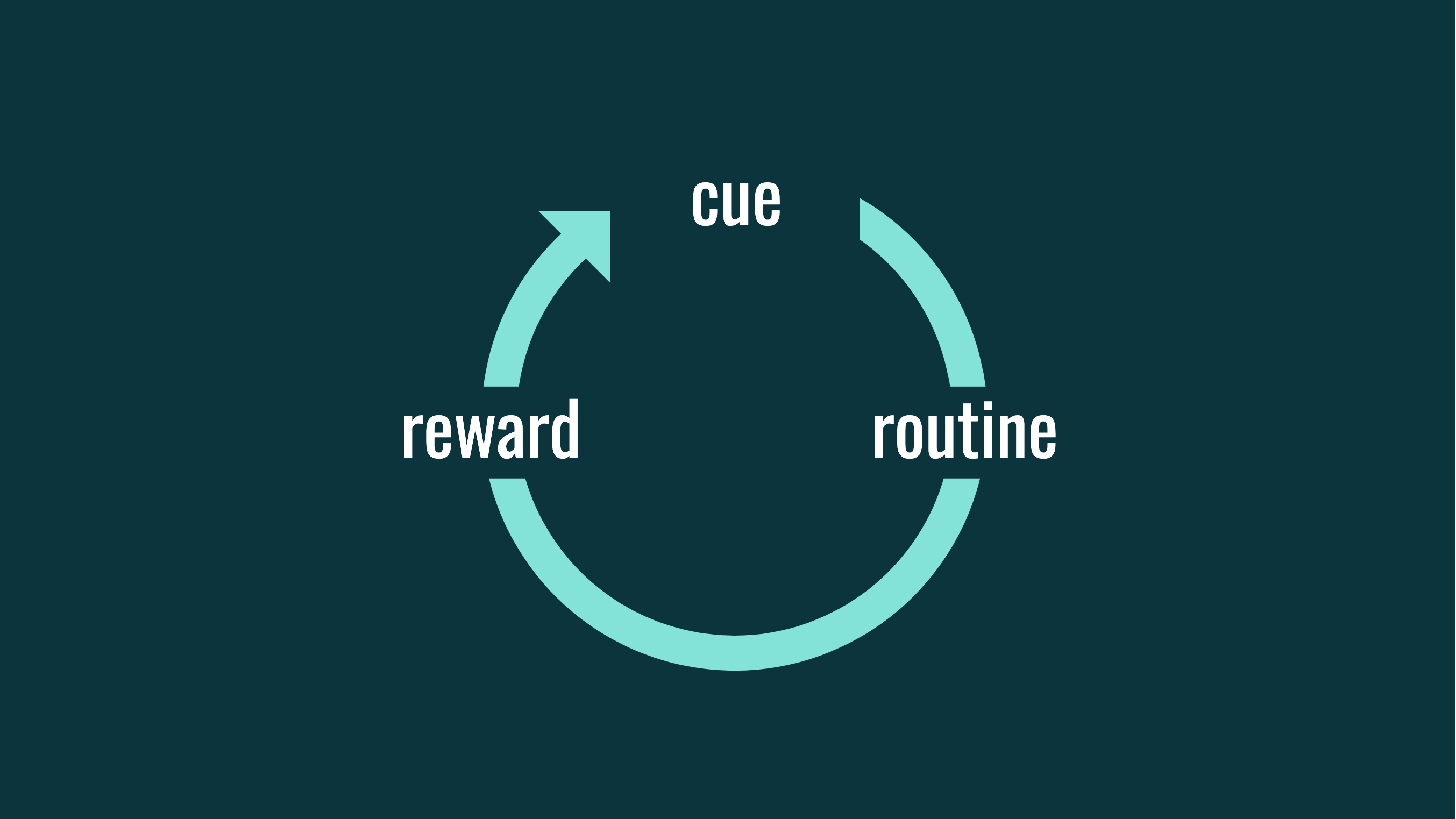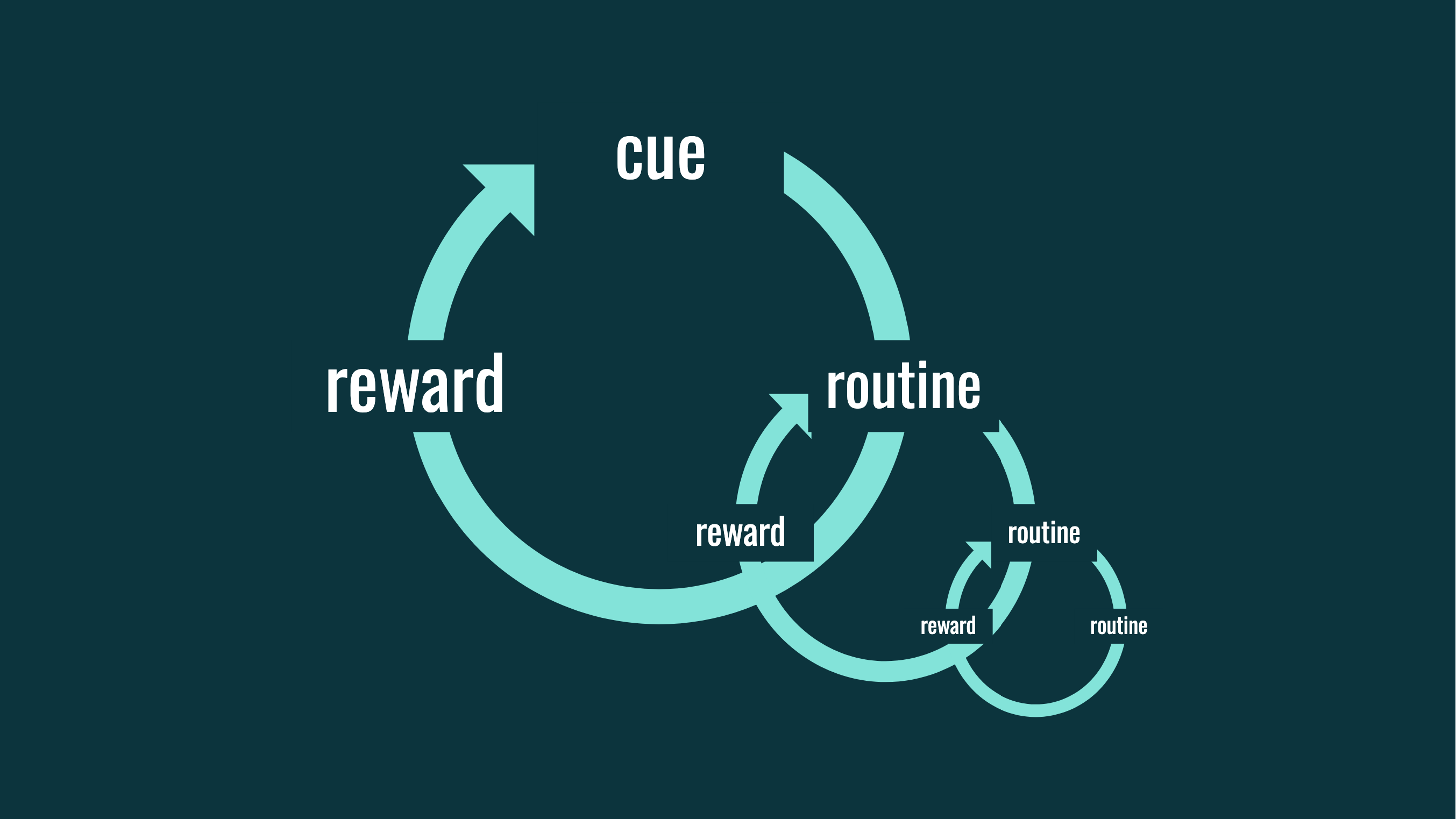Keystone habits are routines that trigger one or more other habit loops, creating a chain of semi-automatic behaviour that can impact life or work (for better or worse).
In The Power of Habit, author Charles Duhigg describes a habit loop as a:
- cue: a triggering action, e.g. alarm clock
- routine: the habitual behaviour, e.g. brushing teeth
- reward: reinforces the routine, e.g. the feeling of clean teeth

Keystone habits are those where the routine of one habit loop is the cue for another. For example:
- cue: alarm clock
- routine: waking early is a habit loop cue:
- routine: exercise
- reward: an endorphin hit
- routine: exercise
- reward: a serotonin hit from watching the sunrise
and so on…

Charles Duhigg suggests we can introduce keystone habits by identifying our existing cues and actively “chaining” them to start another loop.
Some positive keystone habits I’ve read about and/or introduced for myself…
in life
- starting the day early
- exercising
- writing
at work
- Postmortems/retrospectives
- Small PRs or units of work
- Unblocking others before starting something new
- Writing tests per feature/TDD
- Documenting: code, process, architecture
- The Joel Test
- Daily builds
- Fixing bugs before writing new code
- Writing specs before starting work